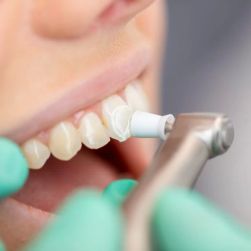The Connection Between Diabetes and Oral Health in Seniors
As individuals age, maintaining optimal health becomes increasingly challenging, particularly for those managing chronic conditions like diabetes. The interplay between diabetes and oral health is significant, yet often overlooked, especially among seniors. Understanding this connection is crucial for promoting comprehensive health and improving quality of life.
Diabetes, a condition characterized by chronic high blood sugar levels, impacts millions of seniors in the United States. According to the American Diabetes Association, approximately 25% of individuals aged 65 and older have diabetes. This chronic illness can complicate oral health, leading to a range of dental issues that require attention and care.
The mouth is a window into overall health, and for seniors with diabetes, changes in oral health can signal broader systemic issues. Conditions such as gum disease, dry mouth, and infections can all play a role in their overall well-being. As a result, it becomes imperative to address and manage these issues effectively.
Understanding the Basics: How Diabetes Affects Oral Health
Diabetes negatively affects oral health primarily through two mechanisms: impaired immune response and increased sugar levels in both saliva and blood. These factors create an environment conducive to bacteria growth, leading to increased risk of oral infections.
Moreover, high blood sugar levels can directly affect the tissues supporting teeth, contributing to gum disease. In seniors, whose immune systems may already be weakened due to age, the consequences of this interaction are more pronounced.
Additionally, diabetes can slow down the healing process, making oral treatments more complex and requiring longer recovery times.
The Prevalence of Gum Disease in Seniors with Diabetes
Gum disease, or periodontal disease, is more common and severe in those with diabetes. A study published in the Journal of Periodontology found that individuals with diabetes are up to three times more likely to develop gum disease than those without the condition.
For seniors, the risk is accentuated due to factors like decreased salivary flow and other comorbidities that may exacerbate oral health issues. Regular visits to a dental professional, such as those recommended on the Dentistry Toothtruth website, are essential to managing gum health.
Preventing gum disease requires meticulous oral hygiene practices, alongside lifestyle modifications, such as controlling blood sugar levels and quitting smoking.
Dry Mouth: A Common but Overlooked Complication
Dry mouth, or xerostomia, is a common issue for seniors with diabetes, often exacerbated by medications used to treat diabetes-related conditions. Saliva plays an essential role in maintaining oral health by neutralizing acids and washing away food particles.
Reduced saliva production can increase the risk of tooth decay and oral infections. Seniors experiencing dry mouth should discuss potential treatments with their healthcare providers and consider using products designed to mitigate saliva loss.
Regular consumption of water and use of sugar-free gum can also stimulate saliva production, helping to maintain oral health in seniors with diabetes.
Managing Oral Infections: The Critical Role of Dental Care
For seniors with diabetes, managing oral infections requires diligent care and prompt treatment. Infections can rapidly progress in diabetic patients, making routine dental visits and proper oral hygiene critical.
Dental professionals often recommend increased monitoring and professional cleanings to help manage the oral health challenges faced by diabetic seniors. Additionally, maintaining stable blood glucose levels can significantly reduce the risk of infections.
The Dentistry Toothtruth platform offers resources detailing preventive care strategies and alerts on when to seek professional treatment.
Impact on Overall Health: Beyond Oral Implications
The connection between diabetes and oral health extends beyond the mouth, influencing overall health. Poor oral health has been linked to systemic conditions, including cardiovascular disease and increased mortality rates among seniors.
Managing oral health effectively can lead to improved management of diabetes and related complications, ultimately enhancing a senior's quality of life. Social awareness and medical education play key roles in combating this public health issue.
The resources available on Dentistry Toothtruth can guide seniors in balancing oral health with their diabetes management strategies.
Preventive Tips for Seniors to Maintain Oral Health
Prevention is key in managing the oral health of seniors with diabetes. Effective strategies include controlling blood sugar levels, establishing a daily oral hygiene routine, and scheduling regular dental check-ups.
Seniors should be encouraged to inform their dentists about their diabetes diagnosis, ensuring personalized care plans that address specific needs. Incorporating a balanced diet rich in nutrients that support oral health is also beneficial.
Finally, engaging in regular physical activity, as advised by healthcare professionals, can improve both diabetes management and oral health, contributing to overall well-being.
Conclusion: Harnessing the Connection for Better Health Outcomes
Understanding the intricate link between diabetes and oral health in seniors is essential for enhancing their quality of life. By addressing oral health proactively and coordinating care between dental and medical professionals, seniors can manage their diabetes more effectively and reduce the risk of complications.
Encouraging regular dental visits, alongside consistent healthcare follow-ups, empowers seniors to take charge of their health. Healthcare providers and platforms like Dentistry Toothtruth offer vital resources to aid in this journey.
Ultimately, integrating oral health with general health practices stands to profoundly impact the lives of seniors, highlighting the importance of comprehensive care in our aging population.






